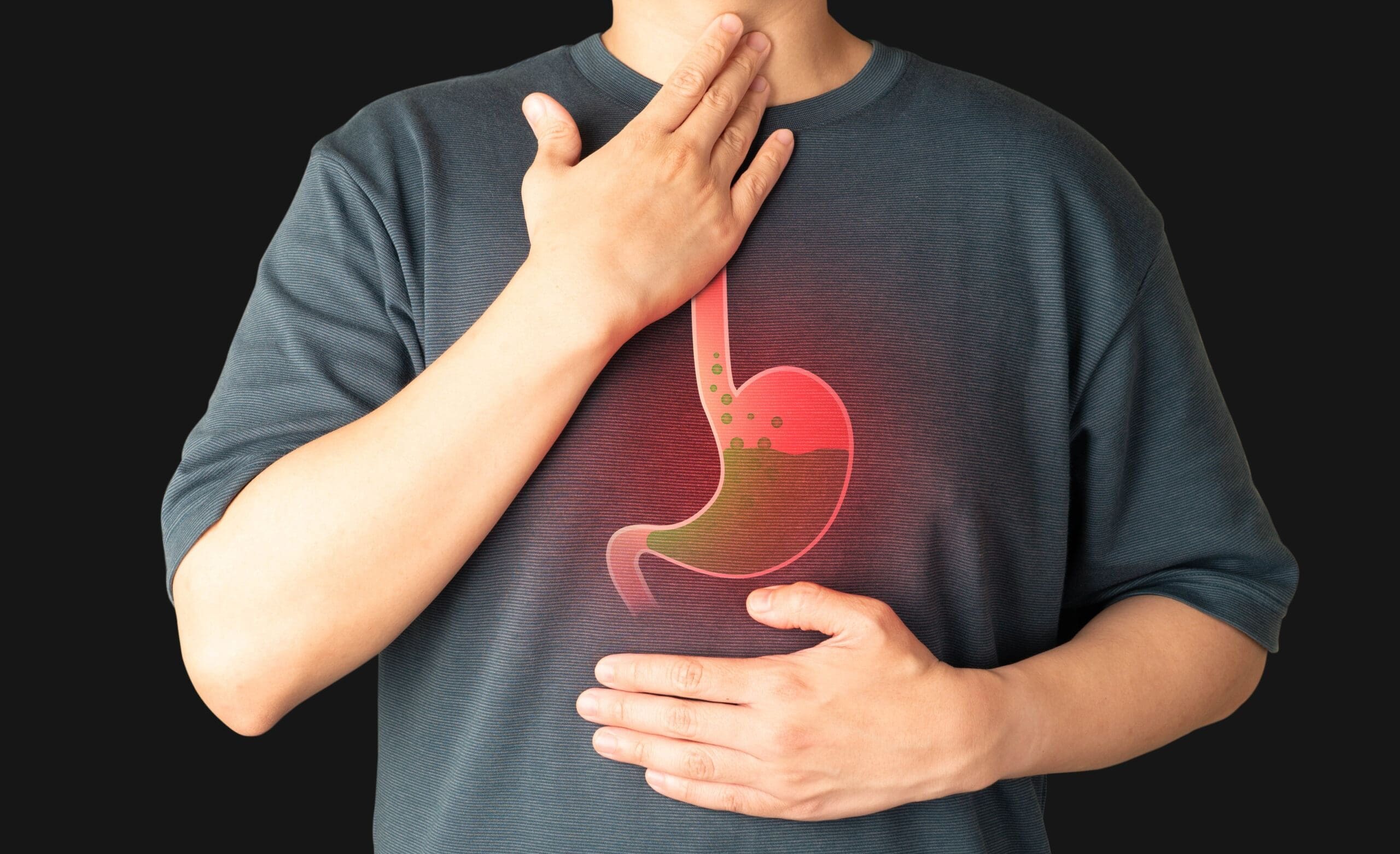Myths and facts about stomach acid
By naturopath Margaret Jasinska
Stomach acid can be a confusing topic. Stomach acid blocking drugs are some of the most widely used medications in the world. That’s not because there’s an epidemic of people with excess stomach acid. In fact, a large number of digestive problems are actually caused by insufficient stomach acid production.
During a meal, the cells of your stomach produce hydrochloric acid and the digestive enzyme called pepsin. Stomach acid and the enzyme pepsin are especially important for breaking down protein into its building blocks, called amino acids. It is also necessary for mineral absorption. Your stomach cells also produce something called intrinsic factor, which is critical for vitamin B12 absorption lower down in your small intestine. People with digestive problems or autoimmune disease are often low in vitamin B12.
When the acidic contents of your stomach make their way into the first part of your small intestine (called the duodenum), the acidity sends signals to your pancreas, for it to release digestive enzymes. Signals are also sent to your gallbladder, triggering it to release bile into your small intestine. The presence of fat in your small intestine also acts as a trigger for bile release.
If your stomach is not producing optimal levels of acid, this creates problems further down your digestive tract, as your pancreas and gallbladder will not function optimally. If you do not break down the protein you’ve eaten into its building blocks, you may absorb large protein molecules into your bloodstream. The large protein fragments are recognised by your immune system as foreign molecules, and you’re then at high risk of developing a food allergy or intolerance. Low stomach acid is very common in people with allergic conditions such as eczema, asthma, hay fever and sinusitis
An inability to digest protein properly due to low stomach acid can also lead to amino acid deficiencies. Amino acids are necessary for neurotransmitter (brain chemical) production. Impaired neurotransmitter production can lead to mood problems and sleep problems.
Another benefit of stomach acid is the antimicrobial effect. Stomach acid helps prevent the overgrowth of bacteria and fungus inside the stomach, and also further down in the small intestine. Producing adequate stomach acid also helps to protect you against food poisoning and gastroenteritis.
Reflux and heartburn
Most people think that heartburn and reflux are caused by too much stomach acid, but the reverse is true in the vast majority of cases. Food intolerance is a common contributor to reflux or heartburn. Eating a food that doesn’t agree with you can give you symptoms. Most people also suffer with Small Intestinal Bacterial Overgrowth (SIBO). An impaired ability to digest fermentable carbohydrates (FODMAPs) can create overgrowth of bacteria in the small intestine. The bacteria produce high levels of gas. The excess gas raises the pressure inside the stomach and puts pressure on the lower oesophageal valve, potentially forcing stomach contents upwards.
If the stomach doesn’t produce sufficient acid, the lower oesophageal valve won’t close tightly enough. This can also cause stomach contents to travel up into the oesophagus. Reflux and heartburn are usually worse in overweight people, as the extra fat places pressure on abdominal organs.
What can cause low stomach acid?
- Stress or anxiety. Your digestive system doesn’t function well if you eat while upset
- Being over 50 years of age
- Acid suppressing medication typically given for heartburn or reflux or a peptic ulcer
- Nutrient deficiencies, particularly B vitamins and zinc
- Digestive diseases such as coeliac disease or inflammatory bowel disease
- Infection with harmful bacteria or parasites
BactoClear capsules contain the essential oils of thyme, oregano and clove, plus the berberine-rich herb Phellodendron. These herbs have powerful antimicrobial properties in the small intestine and can be very helpful for medically diagnosed irritable bowel syndrome.
Insufficient stomach acid can produce the following symptoms:
- Abdominal bloating
- Flatulence
- Burping
- Heartburn and/or reflux
- Weak, splitting finger nails or vertical ridges on the nails
- Weak, splitting hair and lacklustre hair
- Vitamin B12 and/or iron deficiency
- Food allergies and increased risk of eczema
- Gallbladder problems
- Irritable bowel syndrome
- Helicobacter pylori infection. This bug suppresses your ability to manufacture hydrochloric acid, in an attempt to survive inside your stomach
- Bad breath
After age 50 stomach acid production sharply declines.
Antacids and medication for reflux and heartburn suppress stomach acid production, and this has terrible consequences for digestion and overall immune health.
Natural ways to relieve indigestion
- If you are taking an antacid or other medication to block stomach acid, you may want to find a doctor or naturopath who can help you uncover food sensitivities or digestive problems that are causing you to suffer with reflux or heartburn.
- Try not to drink a lot of fluid with your meals because it dilutes digestive enzymes. Drink water and other beverages between meals.
- Try to eat in a calm and relaxed manner, and chew your food thoroughly.
- Find out if you have SIBO and take steps to treat it.
- Apple cider vinegar is brilliant for increasing stomach acid. Place 2 tablespoons of apple cider vinegar in ¼ mug of warm water and sip it 10 minutes before meals. If the vinegar feels uncomfortable going down, or burns you, drink it immediately before eating.
- Use lemon or lime juice as a dressing on your salads, along with a healthy oil such as olive oil, macadamia nut oil, avocado oil or coconut oil.









Leave A Comment